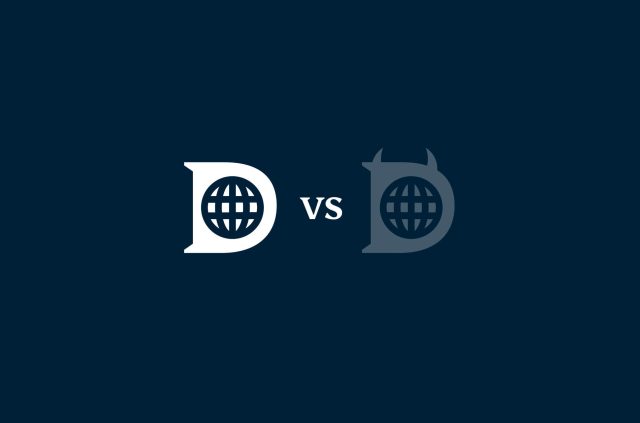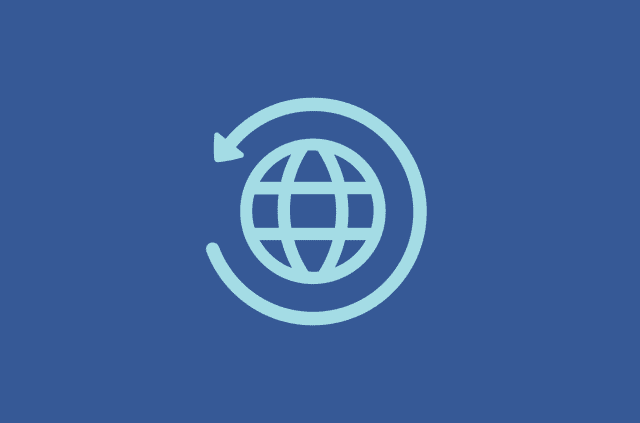The antitrust case against Google might be good for your privacy


NOTE: This post was originally published on December 7, 2020
In October, the U.S. Department of Justice launched an antitrust suit against Google, the first one of its kind since the landmark ruling against Microsoft in 2001.
What is the antitrust case against Google about?
The DoJ argues that Google has unlawfully maintained monopolies in “the markets for general search services, search advertising, and general search text advertising in the United States through anticompetitive and exclusionary practices.” It points to Google’s operating agreements with Apple, Samsung, and various other Android phone manufacturers as examples of monopolistic behavior.
These agreements dictate that any hardware manufacturers using the Android operating system must make Google the default search engine. Other Google apps such as Gmail, Maps, and YouTube must also be pre-bundled. Manufacturers are free to use the basic version of Android if they wish but cannot access the Google Play Store if they do not agree to these terms and conditions.
[Get the Big Tech news that affects you. Sign up for the ExpressVPN Blog Newsletter.]
In the case of Apple, which runs its own operating system, Google pays it over 1 billion USD to maintain its position as the default search engine. Regulators argue that as a result of these arrangements, Google enjoys dominance over multiple products and services, such as email, search, video, and maps. Competitors are not afforded a level playing field through which to woo users away.
Currently, Google has 88% market share among search engines, followed by Bing at less than 7%.
The DoJ case also points to the 40 billion USD spent by digital advertisers on search-based advertisements on Google as an indicator of its market-leading position, arguing that the scale of its services negate effective competition.
Google’s response to the antitrust case says that the legal proceedings are “deeply flawed” and that it would ultimately do more harm than good. It argues that consumers are free to install other apps and rival search engines. “People don’t use Google because they have to, they use it because they choose to,” claimed Kent Walker, SVP of Global Affairs at Google.
What’s likely to happen? Look to Microsoft v. U.S.
The case against Google has several parallels with Microsoft’s in 1998. At the time, Microsoft was accused of illegally pre-loading its Internet Explorer browser on Windows operating systems, thereby crowding out competition from the likes of Netscape.
The initial verdict against Microsoft was an order to break up the company and force it to separate its browser business from its other divisions. Microsoft appealed, with an eventual settlement in 2001 that allowed Microsoft to continue to offer Internet Explorer but with highly restrictive terms and conditions.
Microsoft could no longer force PC hardware manufacturers to work with it exclusively, and it was forced to share its API with software developers, allowing them to build apps that were compliant with Windows.
Ironically, it was this settlement that enabled the ecosystem of third-party developers. And the very first version of Google Chrome was released in 2008, exclusively for use on Windows machines. Versions for iOS and Android came later.
The outcome could benefit your privacy
As it stands right now, Google has a birds’ eye view of what you do online. It’s tracking you as you search for things on the Chrome browser. It can see your emails in Gmail and your video preferences on YouTube. It can also determine your holiday preferences as you search for destinations on Google Flights. And if you have an Android phone, Google can monitor everything from your location to how fast you’re traveling.
The possibility of this changing anytime soon is small; cases like this take years to come to completion, and initial estimates suggest that the hearing won’t take place until at least 2022. Google is ready for a fight with its sizable war chest.
Nonetheless, it’s hard to not expect at least some change down the road. Public sentiment regarding Big Tech is mixed at best, and efforts to rein them in are a bipartisan issue. Google may not have to sell its business units, but it will probably have to give up something in return.
Whatever that may be is definitely good news for privacy advocates. The richest tech companies in the world are those that have managed to extract and monetize the most data. The less information they have about us, the better.
Read more: An open-source alternative to Google Maps
Take the first step to protect yourself online. Try ExpressVPN risk-free.
Get ExpressVPN

















Comments
Google's point about users being able to choose other search engines is pure nonsense. Google is ingrained in every android phone and chrome browser. Google actively blocks certain political views and reports from its search results. Most of the masses of people who use Google are unaware of the censorship Google imposes on the public. Google also omits sites from searches that refuse to pay them to be advertised by Google. This anti-trust suit will be interesting. I can't wait to see them squirm when they are presented with the methods they use to manipulate opinions and more recently, election results. They actively blocked opposing political views and reports in an attempt to tamper with election results.